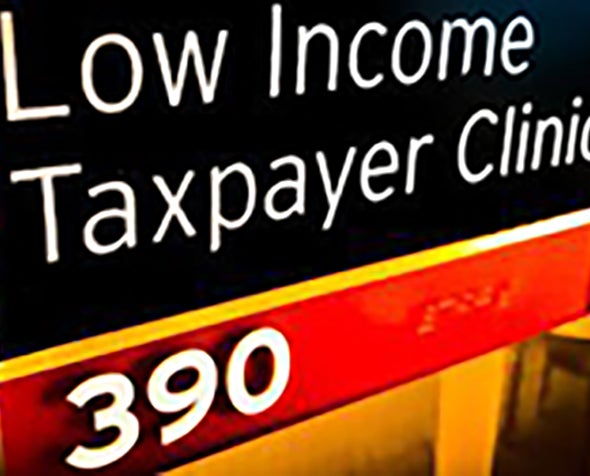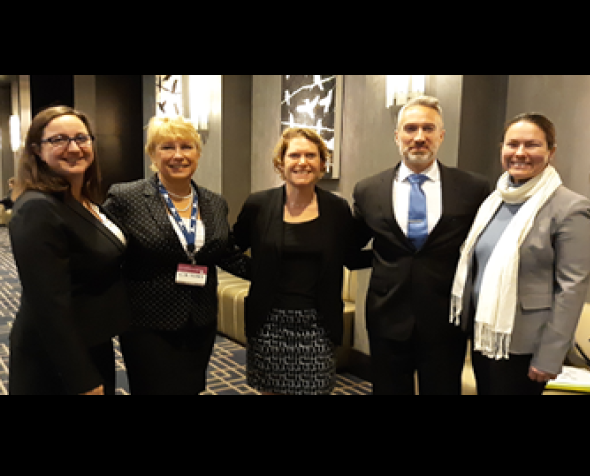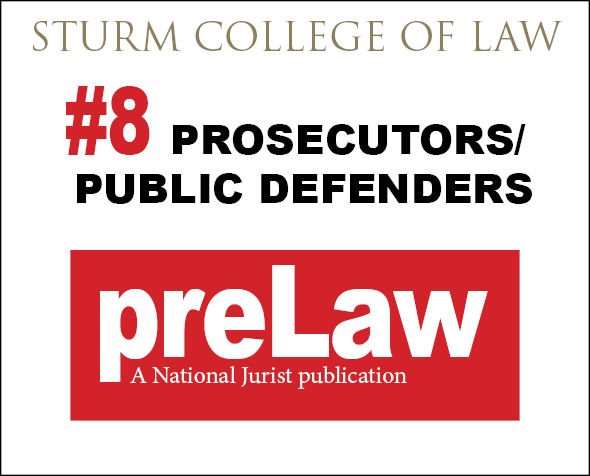University of Denver Low Income Taxpayer Clinic Saves Clients Over $1 Million Annually
Student-staffed clinic provides over 5,000 service hours a year to the taxpayer community.
You don’t have to look much further than the Low Income Taxpayer Clinic (LITC) at Sturm College of Law to see how the University of Denver is fulfilling its mission of being a private university dedicated to the public good. Since 1982, the clinic has been helping the low-income population dig its way out from under mountains of IRS debt.
LITC’s mission is to provide the low-income population (those with an annual gross income of $30,000 or less) with free legal services for tax issues. It generally doesn’t file taxes for people but does handle any issues that arise after the fact.
In 1998, Congress passed a big IRS restructuring act in response to public perception of abusive practices by the IRS. There were a number of reforms put in place—including funding for low income taxpayer clinics—as a measure to reform the IRS and help those who were underserved. The LITC was one of the first clinics funded.
“We handle everything that happens post-filing of a tax return,” says Erin Stearns, LITC director. “The program was structured to help lower income taxpayers know what options they had that they were likely not aware of. We facilitate those options for those people.”
And handle things the clinic does. In 2017 alone, LITC represented 273 taxpayers, helped taxpayers receive $26,372 in refunds from the IRS and decreased the total amount of tax liabilities, penalties and interest of clients by $1.3 million.
Stearns and LITC Assistant Director Samantha Galvin, as well as around 20 student participants a year, make it all possible.
Unlike other student law clinics at Denver Law, the LITC has both master's, JD and LLM participants. It is open to anyone in the Graduate Tax Program, law students and students in the Daniel’s Master of Accountancy Program.
“It’s really a hybrid practice area,” says Stearns. “We feel that if we are going to offer it in the Graduate Tax Program, and at least half of our students are master's students, they should be able to participate.”
This hands-on experience gives students the chance to handle work papers, participate in research and make arguments for their clients. In addition, participation in the clinic creates a multidisciplinary network that lasts long after graduation. The master's students are often coming from a tax and accountancy background, so they can handle issues that law students may not be familiar with. And, the law students studying for their LLM can handle the law aspects and legal research that the master's students may not be familiar with.
It’s a winning combination that has resulted in numerous success stories for the clinic. LITC has helped a range of people from those who struggled with taxes after The Great Recession took its toll on businesses to those who hadn’t filed taxes in years and everything in between.
One such case saw the clinic reduce an IRS debt of $29,000 to only $10. The client had had a successful career prior to suffering debilitating health issues, which left her living on long-term disability and social security disability income. Like many in her position, she didn’t realize she owed taxes on that income and did not have enough withholding. The LITC team took up the fight, and through adjusting her tax withholding and proving her high medical costs, an Offer of Compromise of $10 to the IRS and an offer of $10 to the state was accepted.
While this seems like an extraordinarily rare outcome, it is actually fairly common for the clinic. According to 2017 statistics, the median offer amount for 34 clients with accepted Offers of Compromise was just $10.
“We are just really focused on resolving conflicts with the IRS,” Galvin says. And for those who are struggling with tax debt, that is a huge relief.
Learn more about the LITC at https://www.law.du.edu/low-income-taxpayer-clinic





